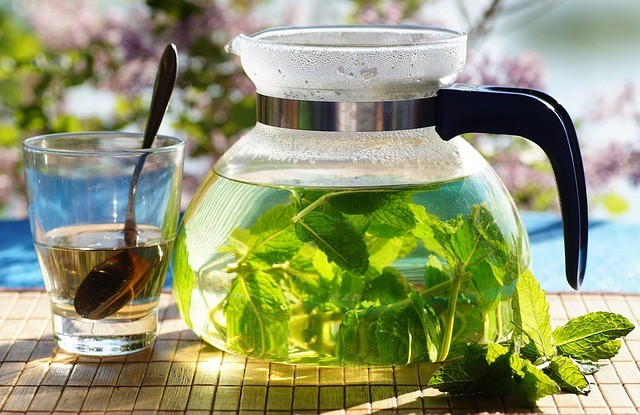Herbal teas are made from blends of flowers and fruits, and have been used for thousands of years as a way to nourish and heal the body and mind. There is a tea to help any ailment, from headaches and aching muscles to helping stomach complaints and allergies. But if you’re feeling under the weather, or need something to help you relax, how do you know what herbal tea to have? Here is a guide to the health benefits of herbal teas.

Chamomile
Chamomile tea comes from the Asteraceae plant that look similar to daisies. The tea has calming properties and is known to help with relaxation. A cup before bedtime often helps if you have difficulty in falling asleep.
Chamomile tea if full of antioxidants that help protect your cells from environmental damage, and aids in the protection against many diseases. Chamomile tea has other health benefits too. It has anti-inflammatory and anti-bacterial effects, helping the body to heal from wounds and stomach ulcers. It may also be beneficial in the controlling of blood sugar levels.
Echinacea
Echinacea is an attractive flowering plant, also from the Asteraceae group of daisy-like plants. Echinacea tea gives a boost to the immune system, which is possibly why it is a go-to remedy to alleviate the symptoms of a cold. Some studies have also shown it to be effective in reducing the length of a cold. It also has anti-oxidants that are beneficial to overall health.
Lemon Balm
Lemon balm comes from the plant Melissa offincialis, which is part of the mint family. When you rub the leaves between your fingers, you get a slightly oily substance that smells of lemon with floral tones.
Lemon balm has long been used for its relaxing properties. Lemon balm tea is good to drink if you suffer from anxiety or have disturbed sleep. It is also useful to relieve symptoms of menstrual cramping, as well as helping to regulate moods.
The anti-inflammatory effects of lemon balm tea also make it good for those with sore joints and arthritis.
Passionflower
Passionflower tea is made from the leaves of this plant. It has a sedative and relaxing effect, helping to relieve muscle spasms.
The phytochemicals, such as quercetin, in passionflower tea reduce the stress hormone cortisol in the body. Passionflower tea has been widely used to treat the symptoms of anxiety disorders, and also narcotic drug withdrawal. It is also helpful in relieving the symptoms of menopause, such as hot flushes and mood swings.
Peppermint
Peppermint tea has a pleasant mild, minty taste, and is great to use for digestive issues. Sipping peppermint tea can help combat symptoms of indigestion, nausea and stomach pain, and can relax spasms in the lower digestive tracts, such as the intestines and colon. It is also helpful for those who suffer from irritable bowel syndrome.
As well as being good for digestive issues, peppermint tea has other properties, such as being an anti-oxidant and antiviral, which bring benefits to your health.
Rose Hip
Rose hip tea comes from the fruit of a rose, and has a sweet flavour.
Rose hips contain more vitamin C than oranges, and was a fruit that was put to good use in the UK during the second world war, when drinking rose hip syrup was recommended. Rose hip tea also has good amounts of vitamin C and A, helping to support the immune system.
Rose hip tea is also a diuretic, flush out toxins through the kidneys, and a mild laxative that provides relief from constipation.
Like most herbal teas, rose hip tea also has antioxidant and anti-inflammatory properties, helping protect against illness and disease.
Herbal teas are great to sip during the day and are a refreshing alternative to caffeinated drinks like tea and coffee. Try some different flavours to find a herbal tea that tastes great and works for you!
Do you find herbal tea benefits your health? Please share your favourites!
